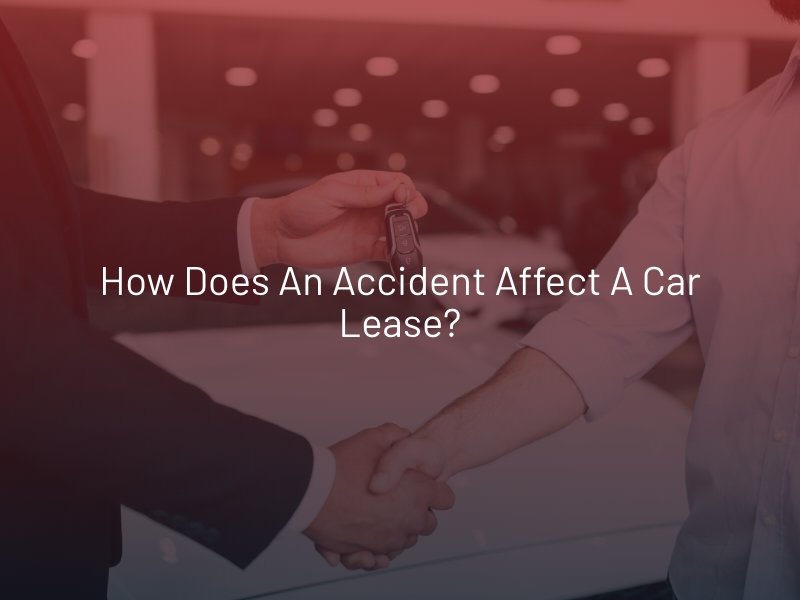How Does an Accident Affect a Car Lease?
Your leased car was just involved in an accident, what now? An accident does not affect your car lease, as you will still owe the leasing company for its value. However, your auto insurance may cover repairs or pay the leasing company for the value of the vehicle if it is a total loss.

Damage to a Leased Car
Although you don’t own a leased vehicle, a leasing company will typically require you to carry auto insurance with comprehensive and collision coverage. That means that after an accident, your auto insurer will pay to repair your vehicle regardless of who was at fault. An insurance adjuster will look at the car and estimate the cost to repair the damage. That estimate is typically what the insurance company pays you up to the limits of your policy.
Keep in mind, you will have to pay your deductible before the insurance company will cover your losses. If another party was at fault for the collision, you might be able to receive reimbursement for your deductible.
What Happens If a Leased Car Gets Totaled?
If the vehicle is a total loss, which means the estimated cost to repair it is more than 65 percent of the vehicle’s value, you might still be responsible for the remaining payments unless you carry specific insurance. Your standard comprehensive and collision policy will only reimburse you the depreciated value of your vehicle. If your lease includes gap insurance, it will cover the difference between the insurance payout and the amount owed on your lease contract.
What To Do After an Accident With a Leased Car
After a car accident with a leased car, there are several essential steps to take after:
Call 911
Report the accident to the police, even if it is relatively minor or you were at fault. A police report is critical in resolving disputes and establishing facts and liability.
Document the Damage
The terms of your lease agreement will determine what you are obligated to do and will most likely require that you document any damage to the vehicle. Take photos of the entire scene, both vehicles, and your injuries, ask for contact information from the other driver and any witnesses.
Seek Medical Attention
Your health is the top priority, and medical records linking your injuries to the accident are vital when filing an insurance claim.
Call your Insurance Company
Even if the accident was not your fault, your own insurance company can help make the process of filing your claim against the other driver’s insurance company much smoother. Since your vehicle is a lease, the repairs must restore it to a like-new condition meaning all parts must be OEM (Original Equipment Manufacturer).
Contact the Leasing Company
Notify the leasing company or dealership of the accident. They have a say in what happens next and will likely require the repairs to restore the vehicle to a like-new condition meaning all parts must be OEM (Original Equipment Manufacturer).
Speak to a Lawyer
If another driver was at fault, a car accident attorney can help you obtain the compensation you need to cover medical bills, repairs, and any other accident-related losses.